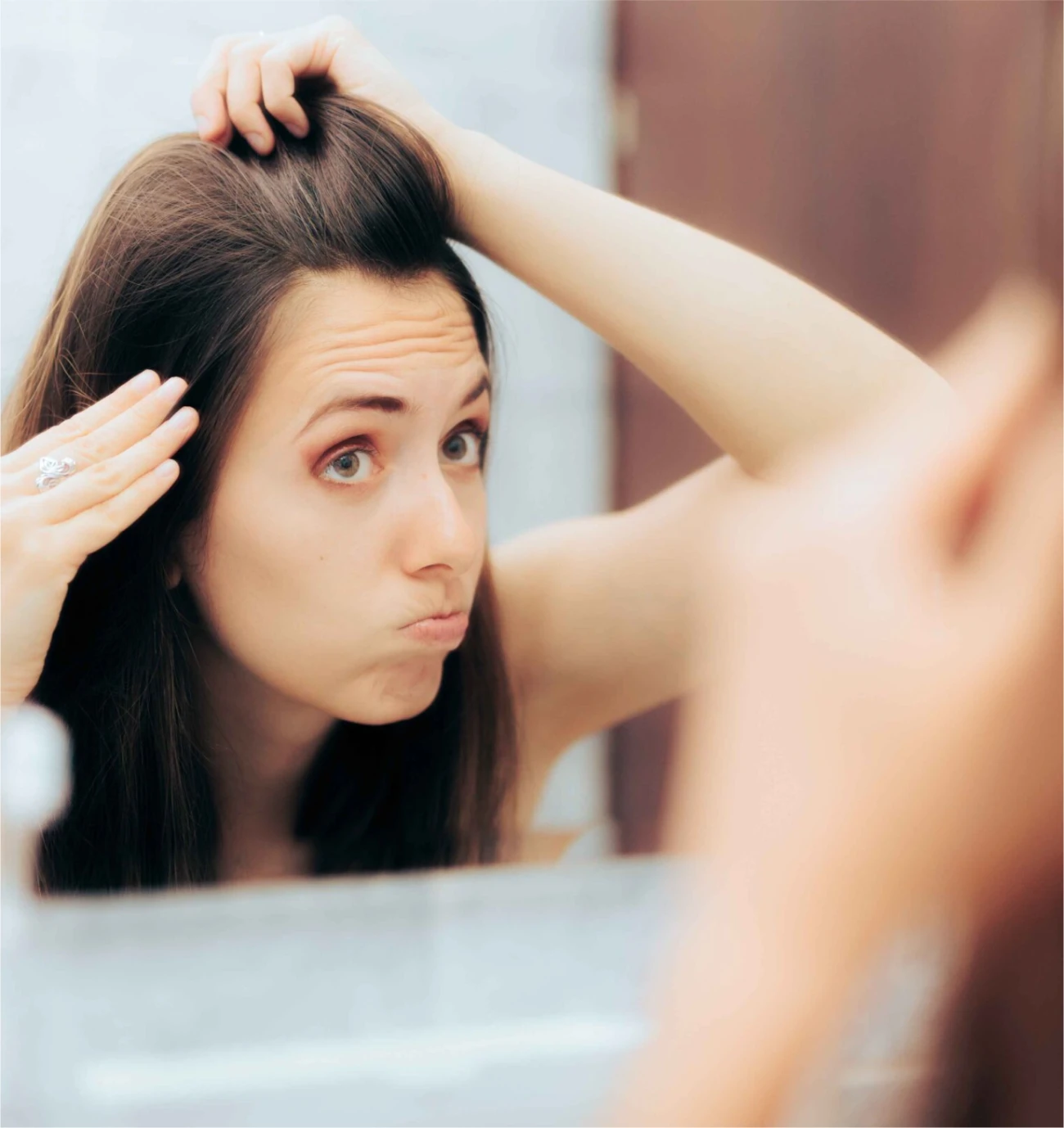Hair Loss Prevention: Lifestyle, Diet, and Stress Management

Hair loss is a common concern that can be attributed to various factors, including genetics, hormonal changes, and lifestyle choices. Understanding the causes and adopting preventive measures through lifestyle adjustments, a balanced diet, and stress management can significantly contribute to maintaining a healthy head of hair. In this blog post, we’ll talk about a common sense approach to hair loss prevention, exploring the impact of lifestyle, diet, and stress management.
How Much Hair Fall Is Considered Hair Loss?
Firstly, it’s essential to distinguish between normal hair shedding and significant hair loss. On average, individuals shed about 50 to 100 hairs per day. Anything beyond this range may indicate a more profound issue. If you’re concerned about excessive hair loss, understanding the root causes is crucial.
Causes of Hair Loss
As mentioned, hair loss can result from many factors, including genetics, hormonal imbalances, and certain medical conditions. However, lifestyle choices can play a pivotal role. Let’s explore the impact of lifestyle on hair health.
Lifestyle Habits That Causes Hair Loss
Unhealthy lifestyle habits such as smoking, excessive alcohol consumption, and lack of sleep can contribute to hair loss. These habits compromise overall health, including the health of your hair follicles. Adopting positive lifestyle changes can go a long way in preventing hair loss.
What Diet Does to Hair Growth
Nutritional deficiencies, particularly in iron, zinc, and essential vitamins, can lead to hair loss. A diet rich in fruits, vegetables, lean proteins, and whole grains supports natural hair care and promotes hair growth.
How Stress Leads to Hair Loss
Stress is a major contributor to hair loss. Chronic stress triggers hormonal imbalances that disrupt the natural hair growth cycle. Incorporating stress management techniques like meditation, yoga, and regular exercise can positively impact your hair health.
What To Do to Prevent Hair Loss: Lifestyle, Diet, Stress Management
To prevent hair loss, consider the following lifestyle changes:
- Quit smoking: cigarettes contain substances and chemicals that decrease blood flow to the skin. Our bloodflow is responsible for delivering oxygen and nutrients to the different parts of the body, and that includes our scalp.
- Moderate alcohol intake: Excessive alcohol intake impairs the body’s natural tendency to heal and maintain cellular balance. This may lead to dehydration of the skin, which may impact hair follicles.
- Prioritize quality sleep: Adequate rest supports a healthy immune system and promotes cellular regeneration, which is reflected in follicular health.
- Manage stress effectively: Stress may cause more of your follicles to go into the resting phase, which is marked by loss of hair. This is called Telogen Effluvium.
- Adopt a balanced diet: food that includes essential nutrients for natural hair care and growth will go a long way toward helping your scalp maintain healthy hair follicles.
Treatments You Can Try to Prevent Hair Loss
For those seeking advanced solutions, several treatments can help prevent hair loss:
- PRP Therapy for Hair Loss: Platelet-rich plasma (PRP) therapy involves injecting your blood’s plasma into the scalp, which may stimulate hair follicles and promote hair growth.
- Laser Therapy (LLLT): Low-level laser therapy stimulates hair follicles, enhancing cellular activity and promoting hair growth.
Why Choose La Jolla Hair Restoration?
La Jolla Hair Restoration stands out as a premier destination for the diagnosis and treatment of hair loss disorders as well as hair restoration surgery. Led by Dr. Carman, the clinic offers cutting-edge treatments and personalized solutions. A commitment to excellence at La Jolla Hair Restoration ensures optimal results and patient satisfaction.
Schedule Your Consultation
Obtain your personalized plan for hair loss prevention by scheduling a consultation at La Jolla Hair Restoration Medical Center. Our team will help you understand the causes of hair loss and help you implement preventive measures to maintain a vibrant and healthy head of hair.


